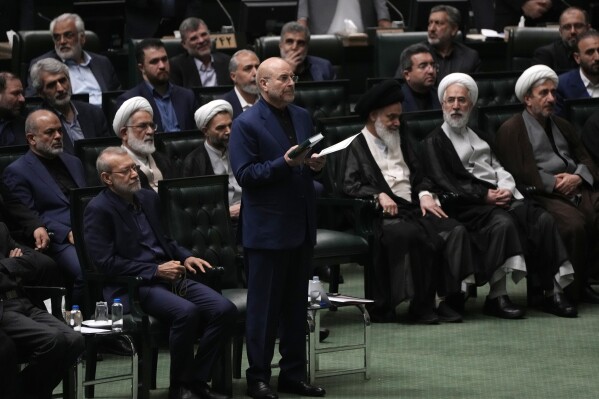Map Shows Total Territory Gained by Russia If Ukraine War Ends Now
Russian President Vladimir Putin's proposed plan for a ceasefire along the current front line in Ukraine has been dismissed out of hand in Kyiv. If the war ended today, the Ukrainians would risk losing around a quarter of their internationally recognized territory, according to President Volodymyr Zelensky.
The front line situation is fluid, with estimates of the total Ukrainian territory controlled by Russia varying. Zelensky said in February that Moscow holds 26 percent of Ukrainian territory, a number that will now be higher given Russia's spring offensive successes in eastern Donetsk and Luhansk oblasts, and its recent seizure of new territory in northeastern Kharkiv region.
Independent estimates made earlier this year have generally been lower, with most considering less than 20 percent of Ukrainian land held by Russia. This represented a major reduction from the opening days of the war and followed successful Ukrainian counteroffensives north of Kyiv in April 2022, and around both Kharkiv and Kherson later that same year.
However, Moscow still holds swathes of the east and south of the country. Its troops are now engaged in a multipronged offensive thought to be intended to complete the capture of four partially held Ukrainian regions—Donetsk, Luhansk, Zaporizhzhia, and Kherson—that Putin claimed to have annexed in September 2022.
The Kremlin also still holds the Crimean Peninsula, which it occupied in 2014 following the pro-Western Maidan Revolution. Kyiv has vowed to liberate that and all other land per its 1991 independently recognized borders.
As many as 11 million Ukrainians may be living under occupation, per United Nations and Russian data. Other estimates are lower, but still say that nearly 5 million Ukrainians are living in Russian-held areas, with millions more having been illegally deported to Russia or fleeing their homes.
Oleksandr Merezhko, a member of the Ukrainian Parliament and the chair of the body's foreign affairs committee, was dismissive of Putin's reported peace proposal.
The Kremlin, Merezhko told Newsweek last month, "needs a respite for several years, to modernize the army and to continue aggression against Ukraine and the West."
"Putin sees that Ukraine is starting to receive serious military aid from the U.S. and Russia will sustain more losses," Merezhko said. "It seems like Putin is afraid that a protracted war will cause more dissatisfaction with his policy among the Russian elite and in the army."
Any peace proposal will remain hollow, Merezhko added, while the Kremlin still claims the partially occupied regions. "Putin has put himself into a dead end by including several Ukrainian oblasts in the Russian constitution," he said. "That means that he will continue the war sooner or later anyway."
Relatively few Ukrainians support a peace along the current front line, despite the strain and huge costs of more than two years of full-scale war against their mammoth neighbor. Still, their number appears to be growing.
A survey conducted by the Japanese broadcaster NHK and the Ukrainian Rating organization in February, for example, found that only 24 percent of respondents said peace negotiations should begin; double the number who said so in February of 2023. A majority of 68 percent still said that Ukraine should keep fighting to recapture all lost territory.
Few observers expect any ceasefire deal with Russia to hold, given the gulf in expectations between the two sides. Putin's Kremlin appears bent on subjugating Ukraine, while Kyiv wants the war to serve as the coup de grâce of Moscow's historical influence over its smaller neighbor and a springboard into the trans-Atlantic community.
Pavel Luzin, a Russian military analyst and visiting scholar at the Fletcher School of Law and Diplomacy at Tufts University in Medford, Massachusetts, told Newsweek last month that Moscow's forces "need a break, but they are not going to end the war."
"For today, they want to get at least Donetsk and Luhansk," Luzin added. "The problem is that the Kremlin claims Kherson and Zaporizhzhia regions as Russia territory as well."
Disclaimer: The copyright of this article belongs to the original author. Reposting this article is solely for the purpose of information dissemination and does not constitute any investment advice. If there is any infringement, please contact us immediately. We will make corrections or deletions as necessary. Thank you.
